Astro A40 Vs Beyerdynamic Mmx 300
Head into any audiophile-centric community, whether it existence on a forum or on a Discord server, and theane question every veteran would be admittedly ill of hearing would probable be this one.
What is the all-time gaming headphone?
Information technology's a deceptively unproblematic question with no straightforward "ane size fits all" answer. Disregarding budgetary concerns (whichshould be the commencement criteria mentioned anyways) the concept of a "gaming headphone" (or a "headphone for gaming", there is a singled-out difference hither) tends to have rather….vague requirements that differ from individual-to-individual, and even from game-to-game.
So before I evenbegin list out the headphones here, all that needs to exist clarified.
TL;DR
Table of Contents
Criteria
What makes a gaming headphone, a "gaming headphone"?
When information technology all gets down to brass tacks, gaming headphones fall nether three big requirements with some intersectionality.
-
-
- Competitive advantage
- Immersiveness
- Something with a microphone
-
I'll interruption each requirement down, and then information technology'll exist up to you to decide which ones are your main priorities.
Competitive Advantage
I believe that this is 1 of the main reasons why a "gamer" would want to get a headphone that is specifically marketed as for "gamers". Sound localisation (AKA "imaging") isextremely important in a lot of competitive games, in particular when it comes to shooters wherein a player playing with sound would have a very distinct edge over another playing deaf.
But really, the biggest advantage begins and ends there. Beyond that, the deviation between individualheadphones on playing operation is minimal at best. I exercise still recollect that there arebetter andworse headphones for gaming, mind yous, but oftentimes the operation jump is inflated for marketing'south sake rather than whatsoever real indication of what you'd actually go far real life.
The two big differences in headphones that aid in gaming are equally follows:
-
-
- Tonal residue
- Soundstage and imaging ability
-
"Tonal balance" sounds like a scary complicated buzzword but it really is just thetuning of the headphone. Flat? Bass-boosted? Treble-emphasised? This kind of "sound mix" helps more than than 1 might call back. Mostly a competitive histrion would benefit the most out of a headphone that is tuned to neutrality or even a brighter tilt as crucial sound cues like footsteps and gunshots exist higher upwardly in the frequency spectrum.
Which is ironic, considering many "gaming headphones" tend to exist tuned rather bass-heavy, and and so isn't actuallycompetitive in this regard. You wouldn't want footsteps and gunshots drowned out every fourth dimension an explosion happens, or if a vehicle is idling nearby.
Soundstage and imaging refers to how the sounds are placed in your hearing field. Soundstage moreso refers to how "wide" or "narrow" your simulated environment sounds, and imaging refers to how accurately sounds are positioned in said environs.
In almost every instance, an open up-backed headphone (a headphone that does not cake out whatever outside noise) will exist the better than a closed-back headphone for staging and imaging power. Open up-backs typically audio wider with more pin-indicate imaging, of class assuming it is being used in a quiet environs. Which, again, is ironic as most "gaming headphones" are airtight-back.
So, if you're someone who isreally concerned with the competitive advantage a headphone would requite you, so what you lot're probably looking for is aneutral-to-brilliant, open-dorsum headphone with a broad soundstage and skillful imaging. Continue that in mind as you read the rest of this article.
Immersiveness
This aspect is much more subjective. Obviously for maximum immersiveness i would go for a headphone with the widest phase and all-time imaging, only thetuning is where things get iffy.
Some may consider a flat/brilliant headphone to sound tooboring orsterile when they're trying to experience similar being in a movie, so a bass-boosted headphone would exist a much more "immersive" experience overall. For these people, the qualities that make a headphone "competitively advantageous" and "immersive" are at odds with one some other, so they have to pick and choose.
And if you're the kind who would want the luxurious combo of wide stage, good imaging, and big bass… unfortunately, you're non going to go big bass response out of an open up-back headphone, and a closed-back headphone with big bass isn't going to take the same staging and imaging equally an open-backed one. A existent catch-22.
So perhaps you're looking for one or both of these characteristics in your gaming headphone, and/or mayhap you'd also want…
Something with a Microphone
… in which instance, you could just likewise purchase a microphoneseparately rather than insisting that everything be bundled together as an All-in-One (AIO).
I'thou no expert in microphones so I would direct you to specialists like Podcastage and Julian Krause for better purchase recommendations. But for averyshallow overview of what y'all can get at unlike price points:
$10 ~ $xx: Clip-on/lavalier microphone
Under $fifty: Samson Go, V-moda BoomPro (limited compatability)
$50 ~ $150: Antlion Modmic
~$150: Audio Technica AT2020
Once again I am no expert in this manufacture so these arebarely recommendations and more like a rough overview of what to wait at each price point. The Modmic is usually the default recommendation for those wanting a traditional smash-arm-type microphone that is immediately uniform with any headphone you lot might want to purchase, only as with everything else on the list it'south an extra cost that needs to be added on peak of the cost of whatever headphones you want to get.
…
And even as all this is said and done, the virtually important bespeak is this: Any HEADPHONE CAN Be USED Every bit A GAMING HEADPHONE. There iscypher special about "gamer"-branded headphones that don't already exist in regular headphones, autonomously from possibly a congenital-in microphone which can exist purchased separately anyways.
And at present, the best headphones for gaming at each major toll point.
All-time under $50
KOSS KSC75

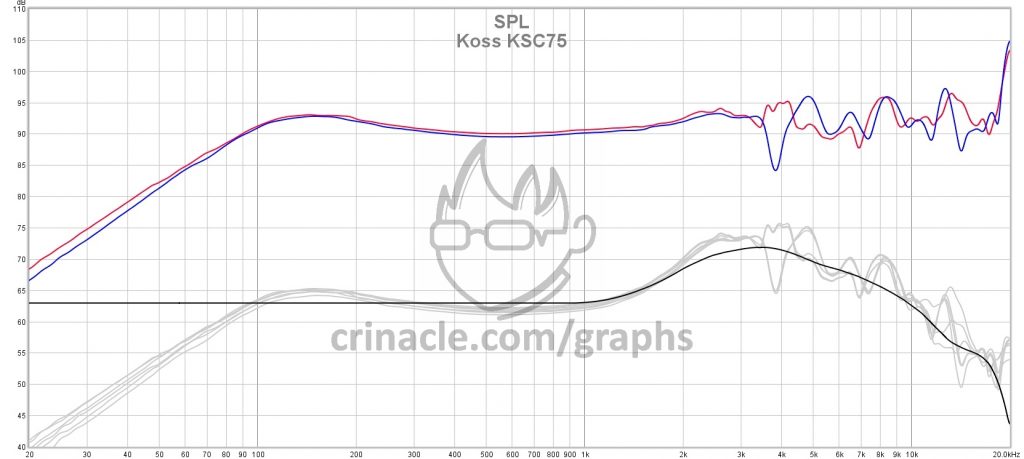
Product folio:
KSC75
Massdrop KSC75x
MSRP:$20
Typical street prices: As low equally $15
I say headphones, merely actually there's merely one choice here. And it's non even a headphone.
I have written a total review so I won't go too in-depth here. In short, these clip-ons provide the same staging width and imaging chops equally a fully circumaural open-back headphone, and while the bass extension leaves a lot to be desired in music and movie listening, the added clarity is invaluable for those seeking that competitive edge.
Information technology's not hyperbole to say that the KSC75s are more-or-less the true gamer's default option all the way upward to $150. Information technology'due south that skillful, and with a cheap lapel mic your entire setup wouldn't even break $50 total. Pretty much every other sub-$100 open up-backed headphone pales in comparison.
Best under $100
Philips SHP9500
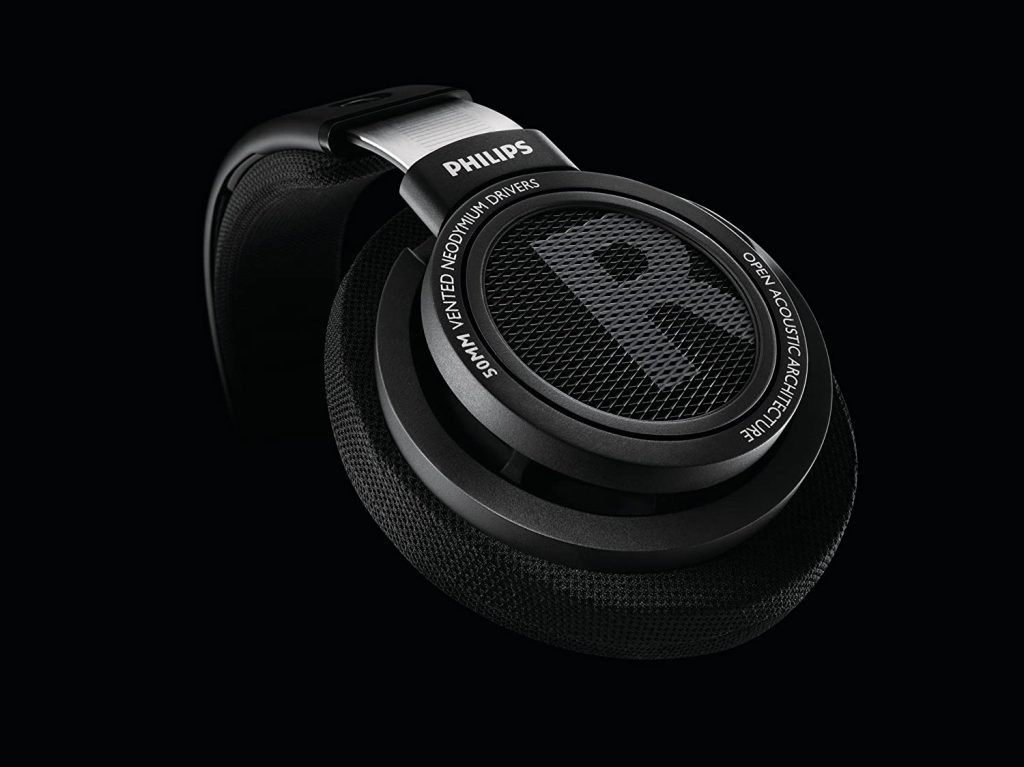
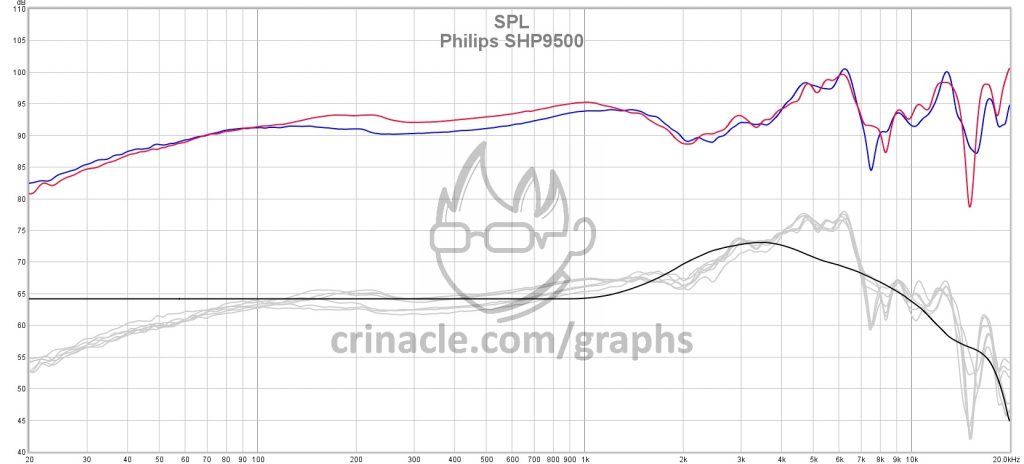
Product page: https://www.philips.com.hk/en/c-p/SHP9500_00/hifi-stereo-headphones
MSRP:$80
Typical street prices: Around $75
The sub-$100 market for open-backed headphones isabysmal, and so while the SHP9500 is on this listing I would notwithstanding choice the KSC75 over it. Merely information technology does have its uses in gaming.
Does it have broad soundstage? Yep. Does it take good imaging? Decent. Does it accept a neutral-bright signature? Definitely college-frequency-tilted. So regardless of my criticisms of information technology as a music-listening headphone (of which I gave it a "C" rank on my ranking list), I can at to the lowest degree acknowledge it as a pretty skilful gaming headphone.
Best under $200
AKG K612 Pro

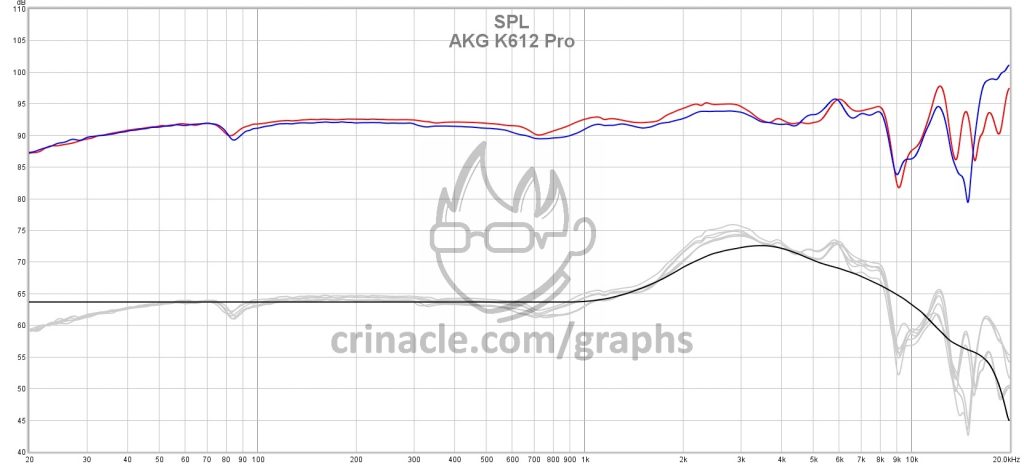
Product page: https://www.akg.com/Headphones/Professional%20Headphones/K612PRO.html
MSRP:$210
Typical street prices: $150
Now we're getting into the starting timejustifiable update over the KSC75.
The K612 is flat with an ever-so-slight tilt towards brightness, and still retains that signature AKG staging and imaging. At $150 it's ane of the best buys in the cost range that coincidentally also matches with gaming needs very well.
It's also a little boring, mind you, and then don't expect it be specially immersive if you're looking for that dynamic thump and impact from explosions and whatnot. Competitive, but non heady.
Hifiman HE400se
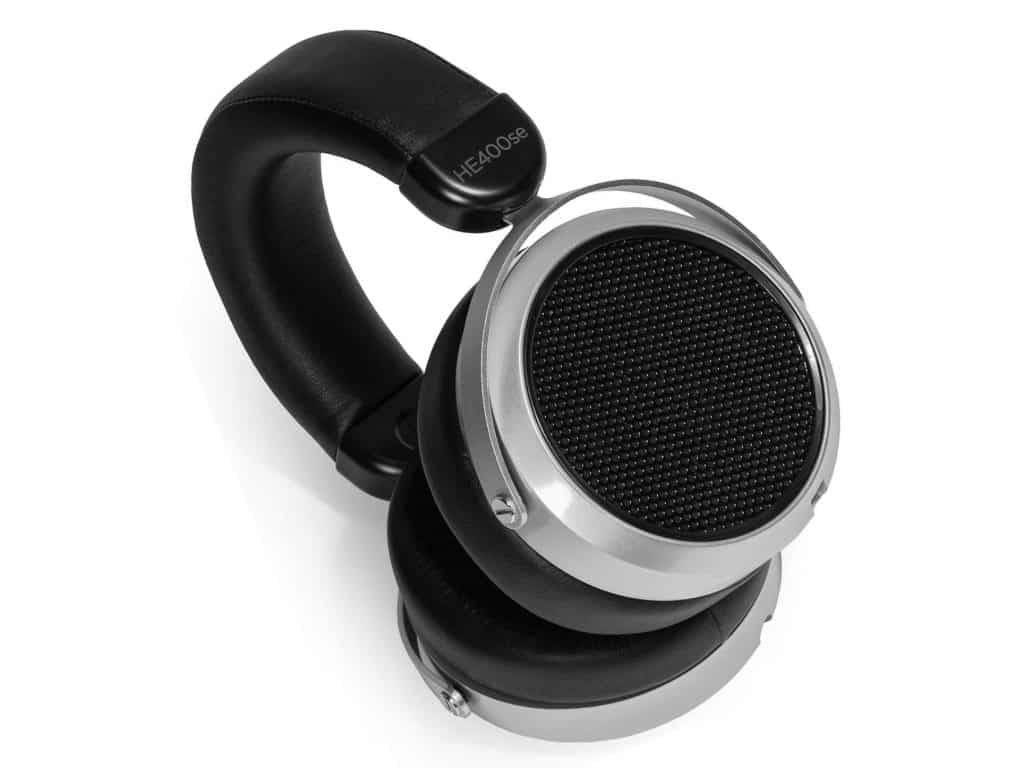
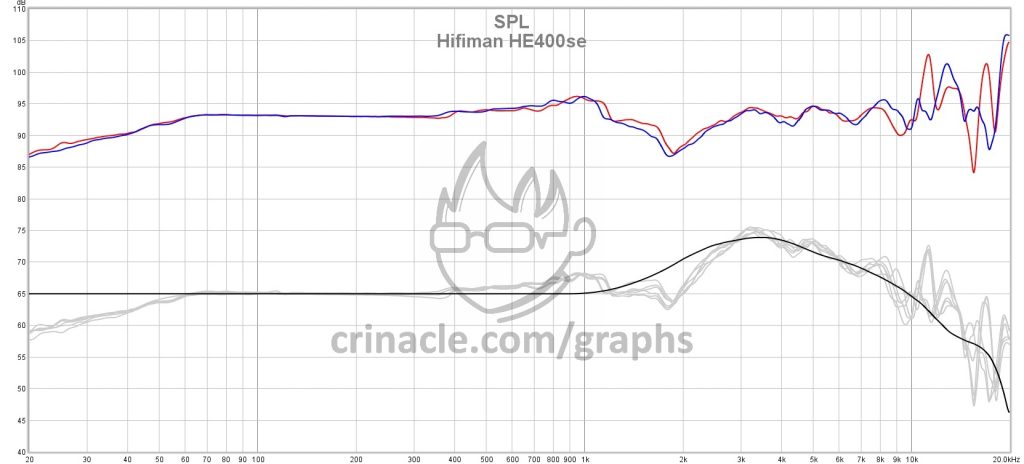
Product page: https://store.hifiman.com/alphabetize.php/he400se.html
MSRP:$150
Typical street prices: $150
Another solid sub-$200 open up-backed headphone, the HE400se is a solid comeback over the original HE400i and starting to become a mainstay recommendation for general audiophiles as well.
In comparing to the K612, the HE400se trades off its clinical execution with some extra excitement and dynamism. It's non as expert in the imaging and stage width department just I'd consider the HE400se to be a far better all-rounder for those who aren't on KovaaK 24/7.
Don't wait it to be as exciting as the other V-shaped gaming headphones, though. Information technology's still a balanced, neutrally-tuned headphone at its core.
Honorable mention to theSennheiser HD560S ($200 MSRP and street price); while having some imaging concerns equally highlighted in my review it is notwithstanding one of the best $200 headphones out in that location that would satisfy all only the about nitpicky of audiophiles.
Best under $300
beyerdynamic DT880 Pro
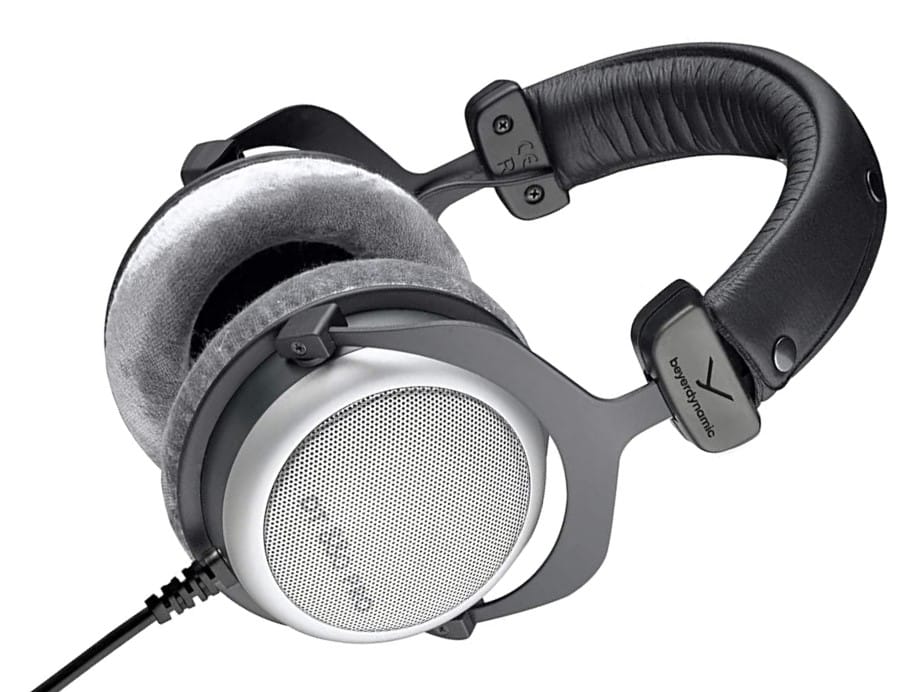
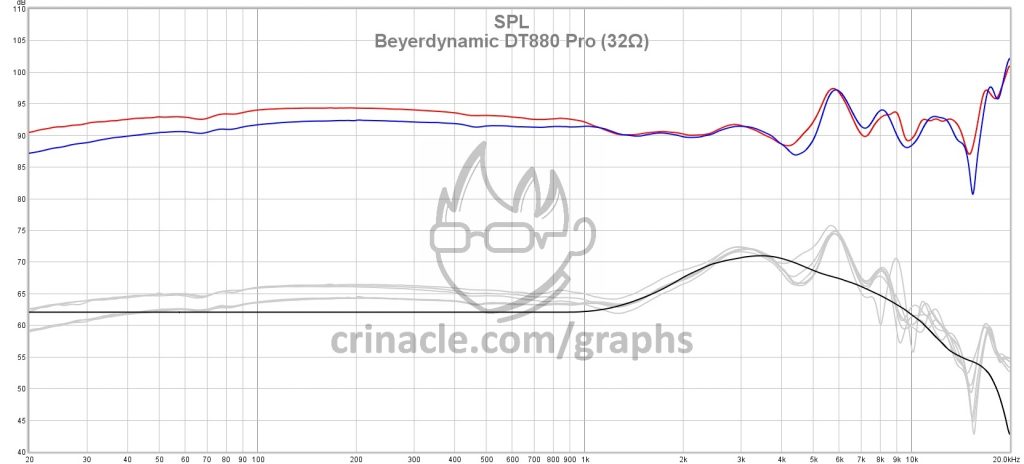
Product folio: https://europe.beyerdynamic.com/dt-880-edition.html
MSRP:$230
Typical street prices: $230
Probably the all-time model in the DTXX0 series of beyerdynamics, the DT880 is as well surprisingly excellent for gaming needs.
The brilliant tilt, again, helps with identifying footsteps and gunshots far improve than any bass-boosted can. What many would consider Beyerdynamic's Achille's Heel is at present an advantage in the gaming space. How poetic.
Honorable mention to theMassdrop x Sennheiser HD6XX ($220 MSRP and street cost); the HD6X0 serial arenotorious for having closed-back levels of staging width and extremely basic imaging, but the HD6XX still remains one of the best deals in audio that should be taken into consideration regardless on one'south obsession with beingpro gamer.
Best under $500
Audio Technica ATH-R70x
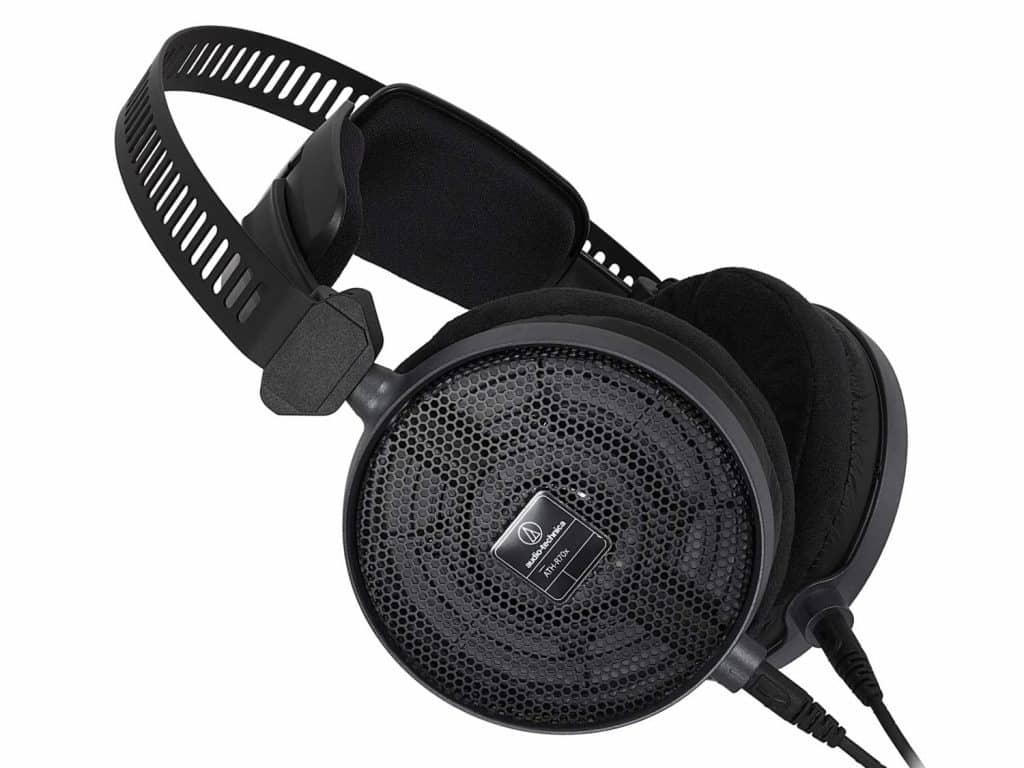
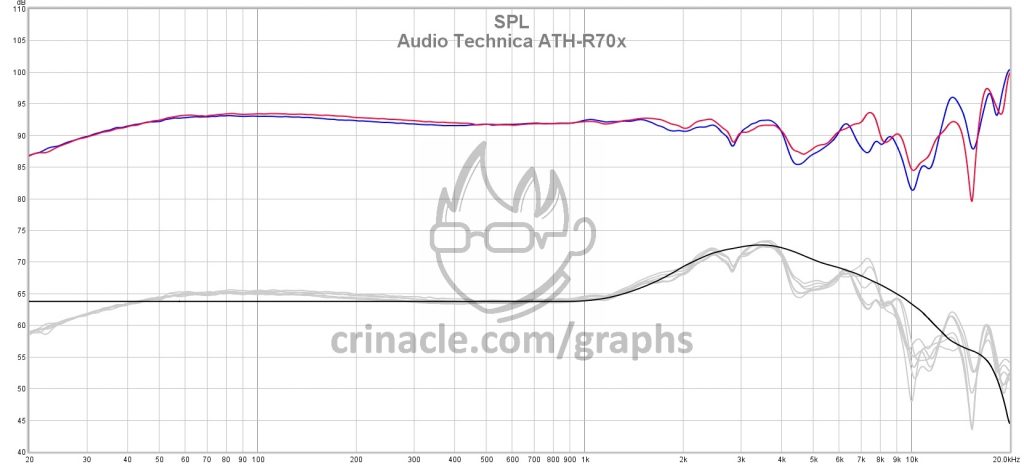
Product folio: https://www.audio-technica.com/en-us/ath-r70x
MSRP:$350
Typical street prices: $350
Some may argue till the cows come domicile that the HD6X0 are unequivocally the superioroverall headphone, just hardly anyone will deny that the R70x has them trounce on staging and imaging.
Up until the kilobuck ranges (foreshadowing!) the R70x probably has the best combination of phase width and imaging precision, and would be my main recommendation for those looking for the best-of-the-best in gaming operation at a non-totally-ridiculous pricepoint.
Surprisingly the R70x is probably the least treble-emphasised peculiarly in comparison to the rest of the headphones in this listing, but the imaging performance carries it so difficult that it doesn't need the tonality advantage anyways.
Hifiman Sundara

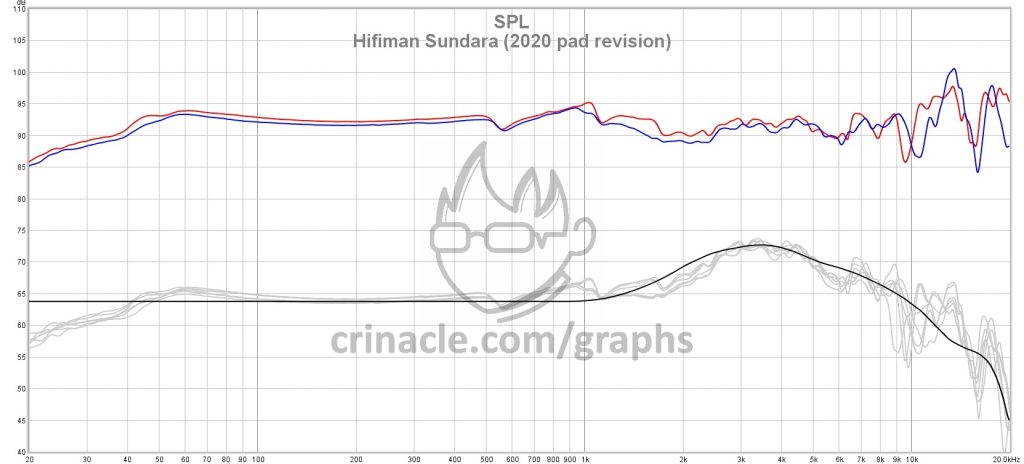
Product page: https://hifiman.com/products/detail/286
MSRP:$350
Typical street prices: $350
Ialmost didn't want to put the Sundara on this list because staging and imaging isn't its strong suit, but it'southward still an extremely solid headphone overall withdecent imaging power and I felt like the R70x needed a partner in this space.
Similar the HE400se is to the K612, the Sundara is theall-rounder in the sub-$500 gaming space. It'southward no R70x simply it'southward no HD6X0 either, and would trounce out well-nigh every closed-dorsum headphone in the toll bracket as well.
Honorable mention to the Sennheiser HD600 ($400 MSRP and $280 street price); a slight improvement over the HD6XX/HD650 on the staging front with a more neutral response, but with similar imaging problems.
Reasonable Endgame
Sennheiser HD800/S
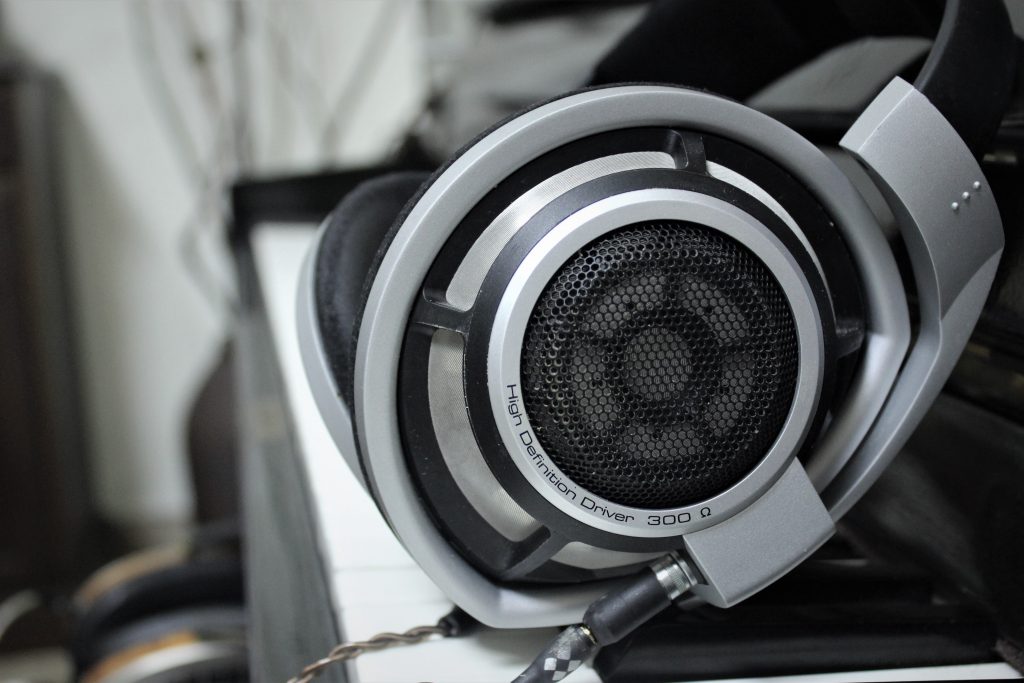
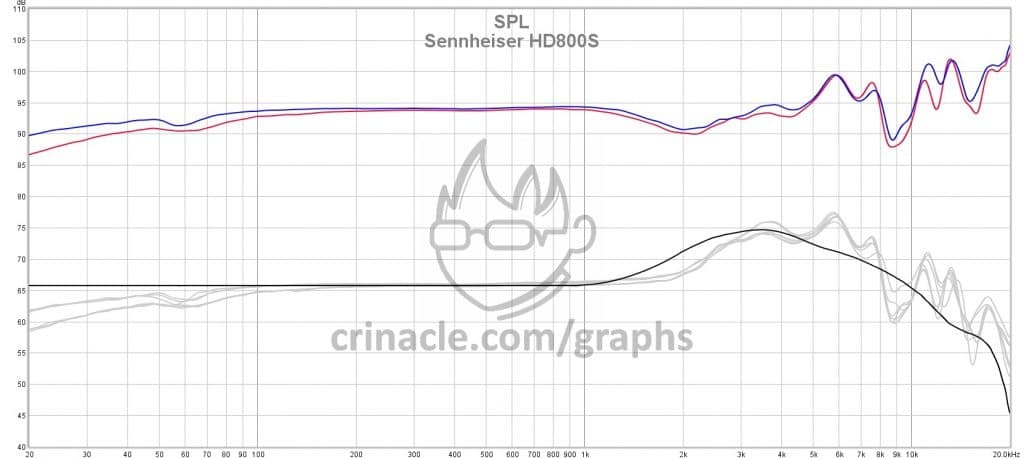
Product page: https://en-u.s.a..sennheiser.com/high-resolution-headphones-3d-audio-hd-800-south
MSRP:$1,600
Typical street prices: Roughly $1,500
"Reasonable" in this example being notcompletely off the rails in terms of overall cost, else I might as well recommend the $59,000 HE-i or some convoluted Stax setup.
The HD800 is renowned for its soundstage width, being 1 of thewidest-sounding headphones ever made. In terms of immersiveness, bass boost exist damned. The HD800 doesn't need big bass to show you how far it tin can project sound across the confines of your head, and in this regard information technology is the G.O.A.T..
Couple that with the bright tilt and what you have is a headphone that is surprisingly advisable for competitive play, perhaps the best in the category bold that noise isolation isn't required.
Not-terrible Gaming Headsets
(That I have tried and so far)
But even though information technology's clear that "normal" headphones are ofttimes better than their "gaming" counterparts, sometimes y'all don'twant to buy your headphones and microphone separately. Perhaps it's also much hassle and you prefer to just have a boom arm permanently attached to the side of your head and ready for action whenever you want.
That's fine too.
These headsets are notthe all-time so there's a reason why they never come up in the conversation in audiophile circles; around people obsessed withthe best. A gaming headset provides the convenience of an AIO only neither the headphones part nor the microphones part volition ever lucifer upwards to dedicated selections of each.
And then for these usecases, here is a list of what I would considernot-terrible gaming headsets.
Disclaimer: I am not including headphones/headsets that Itake non tested.
Astro A40
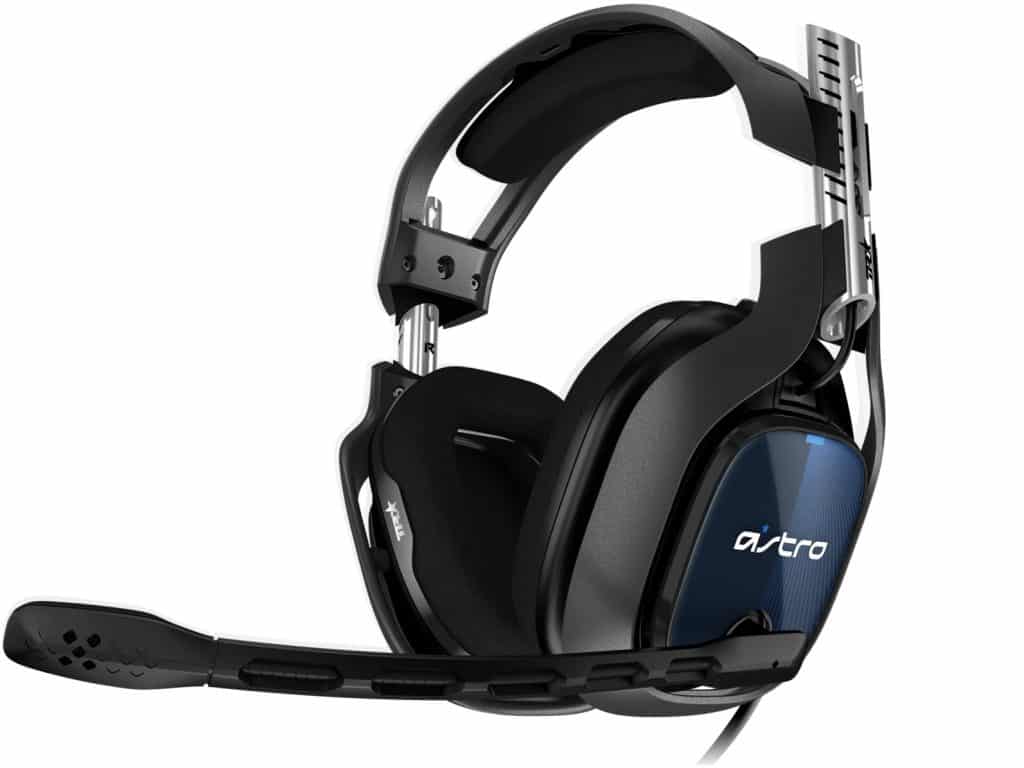
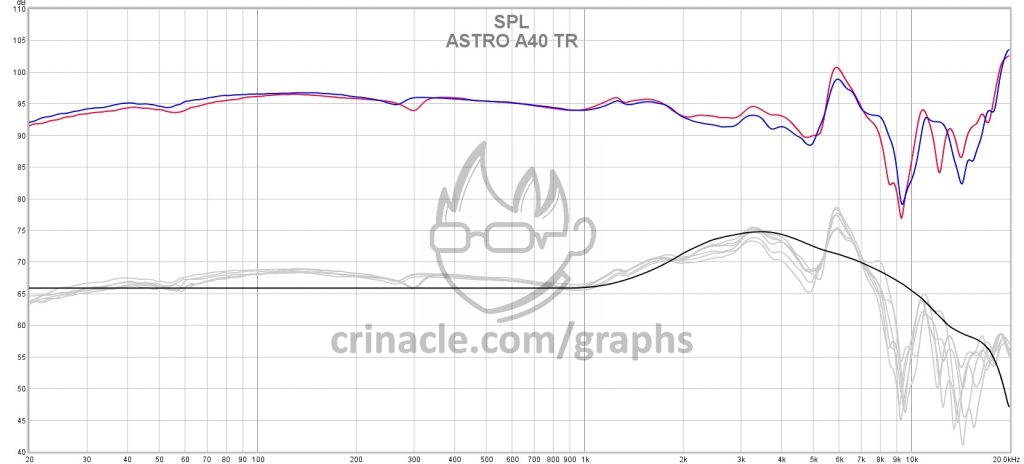
Product page: https://www.astrogaming.com/en-us/products/headsets/a40-tr-gen-4.html
MSRP:$150
Typical street prices: $150
The A40 is the simply headset from a gaming brand that I've heard (then far) with a neutral-ish tuning. So on the tuning front end information technology's a pretty decent pick, but unfortunately still comes with the narrow and congested staging of a typical closed-dorsum headphone.
Like I said, it's not terrible. In fact, information technology's a pretty good headphone fifty-fifty at $150. But even for gaming there are better options.
Drop + Sennheiser PC38X
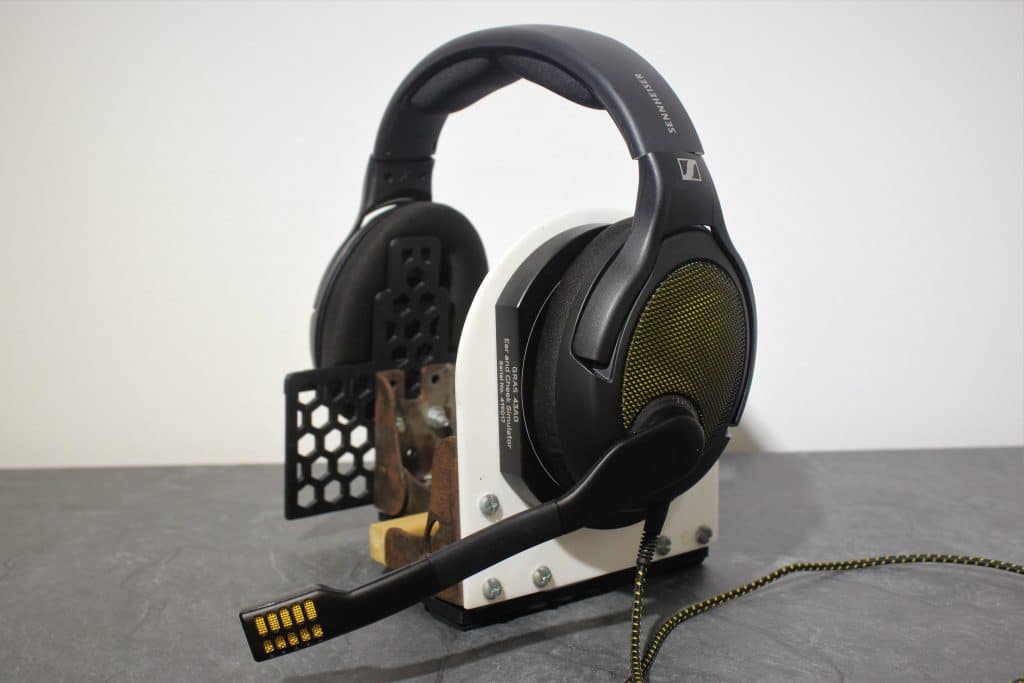
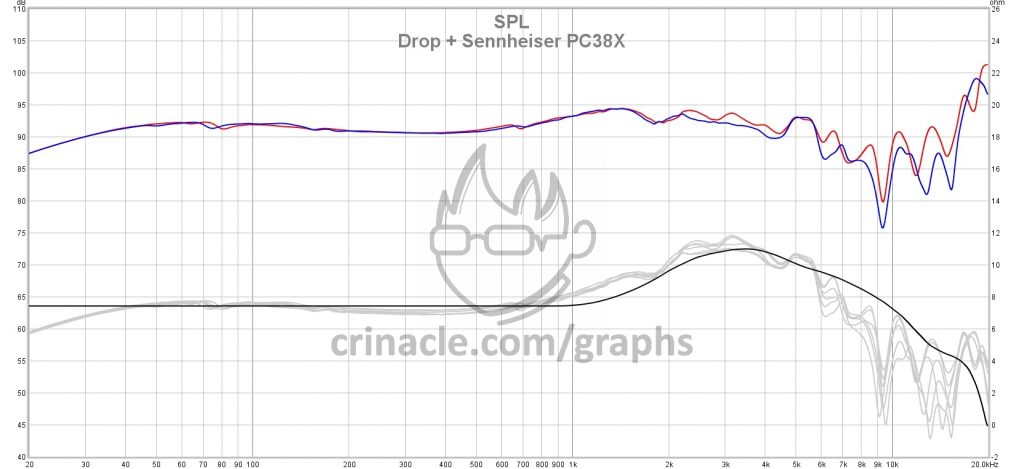
Production folio: https://drop.com/buy/drop-sennheiser-pc38x-gaming-headset
MSRP:$170
I've written a full review of the PC38X and so I won't swoop too deep hither.
A TL;DR: while I plant the PC38X to be an uncommonly well-tuned headphone, the staging and imaging is so compressed that I cannot, in practiced organized religion, recommend it as a headphonepurely for gaming. It is a swell headphone for music listening, but ironically this gaming headphone isn't the most appropriate for gaming.
beyerdynamic TYGR 300 R
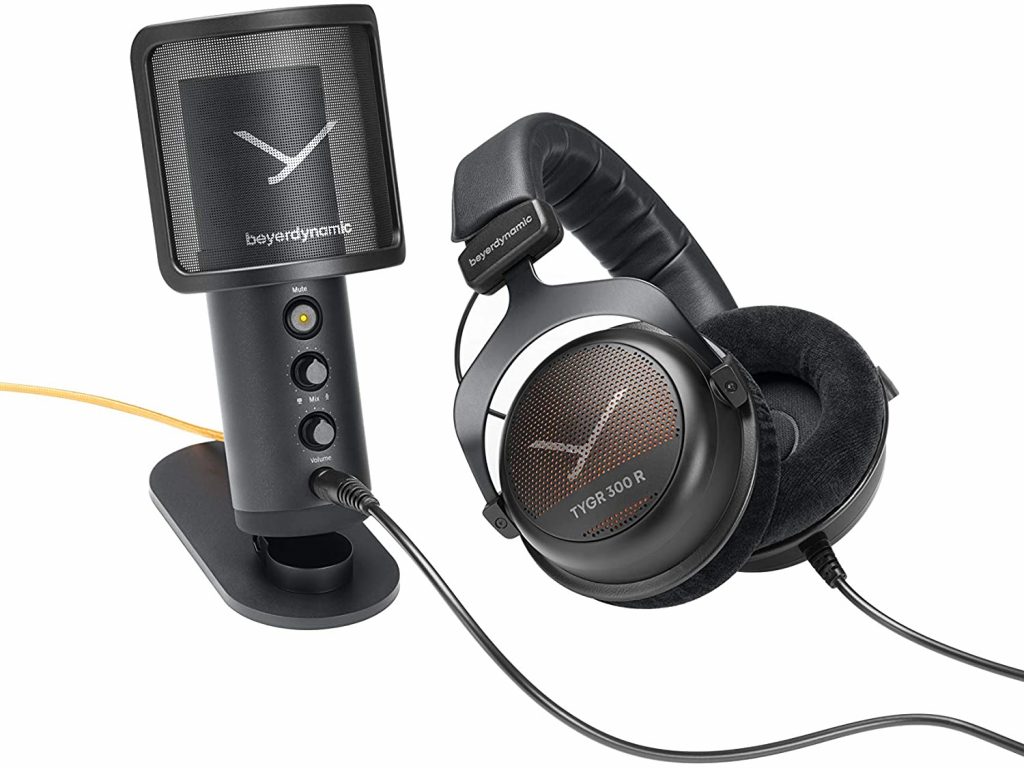
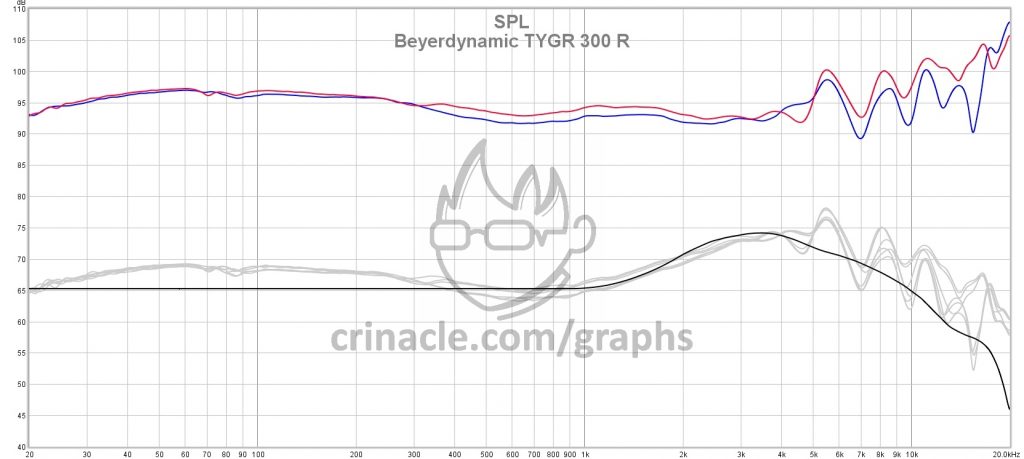
Product folio: https://europe.beyerdynamic.com/tygr-300-r.html
MSRP:$300 ("Streamer bundle" including Flim-flam microphone)
Typical street prices: $300
The TYGR 300 R itself is a decent headphone, but without the bundled Fox microphone or an attached boom arm information technology's equally much of a gaming headphone as the rest of my non-gaming-headset recommendations.
The bundle is alright, but if you lot're considering separating your headphone and microphone purchases yous might every bit well aim college and practice your own enquiry for each. That said, this isn'tterrible then it makes it on this mediocre list.
Audeze LCD-GX
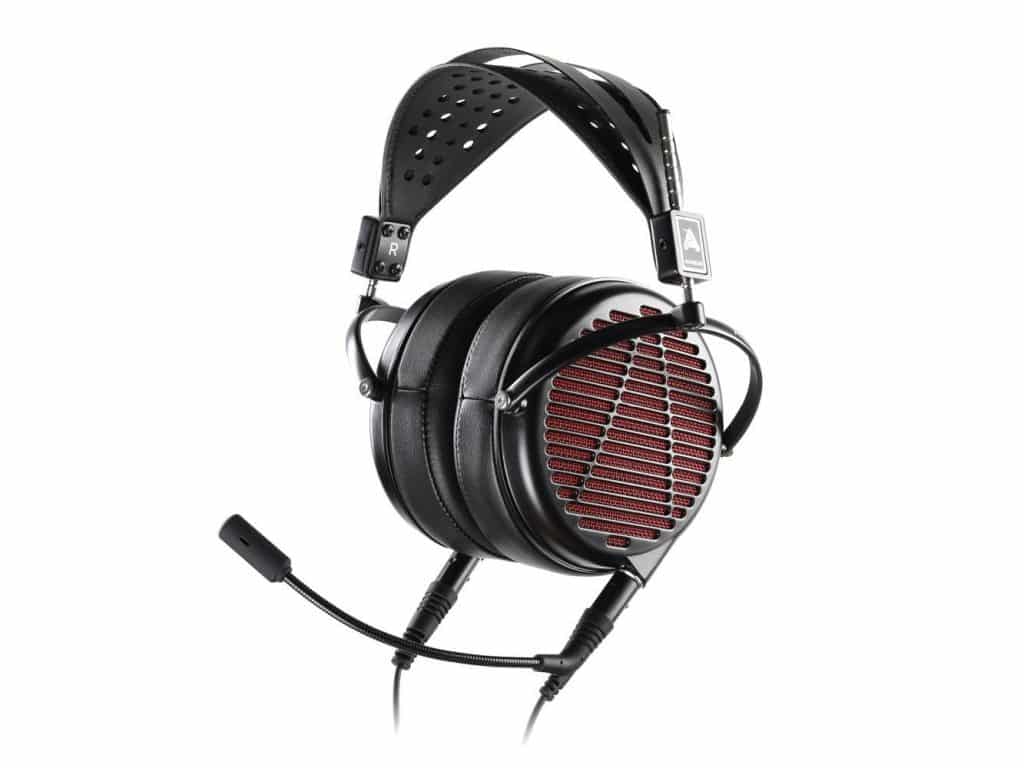
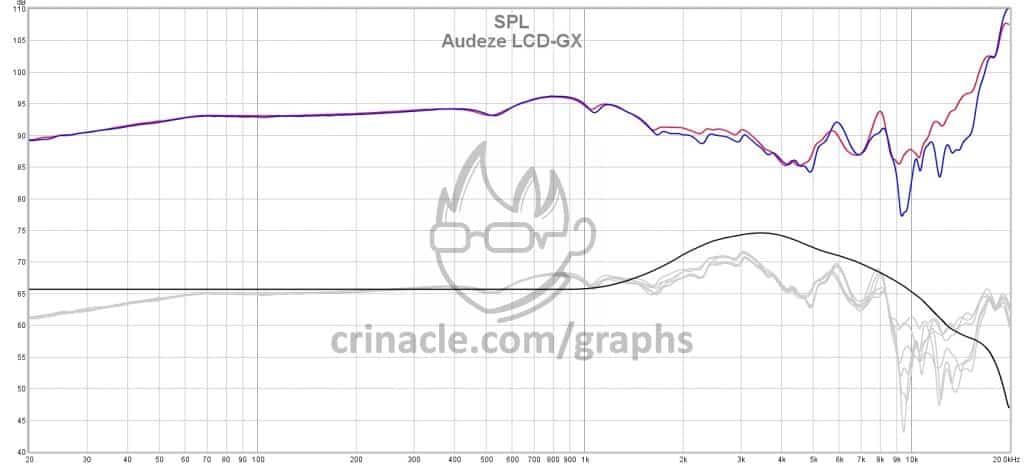
Product folio: https://www.audeze.com/products/lcd-gx
MSRP:$900
Typical street prices: $860
The Audeze audio signature isodd considering I never found their downwards-tilt particularly appropriate for gaming. You can't fifty-fifty call them "bass-boosted" either, more "upper-mid-recessed".
On top of that, at slightly nether one-half a kilo without a cable (slightly over with a cable), information technology may exist one of the lighter Audeze headphones but also one of the heaviest gaming headsets out in that location. I usually don't care about headphone weight and build, but when my gaming sessions often go on for hours… that weight gets harder and harder to ignore.
Honorable mentions for gaming headsets that are not-terrible (not personally tested, simply according to the people I trust):
- Astro A50
- Audeze Penrose
- Massdrop ten Sennheiser PC37X
- HyperX Cloud 2
Astro A40 Vs Beyerdynamic Mmx 300,
Source: https://crinacle.com/guide/gaming/
Posted by: davishadir1943.blogspot.com


0 Response to "Astro A40 Vs Beyerdynamic Mmx 300"
Post a Comment